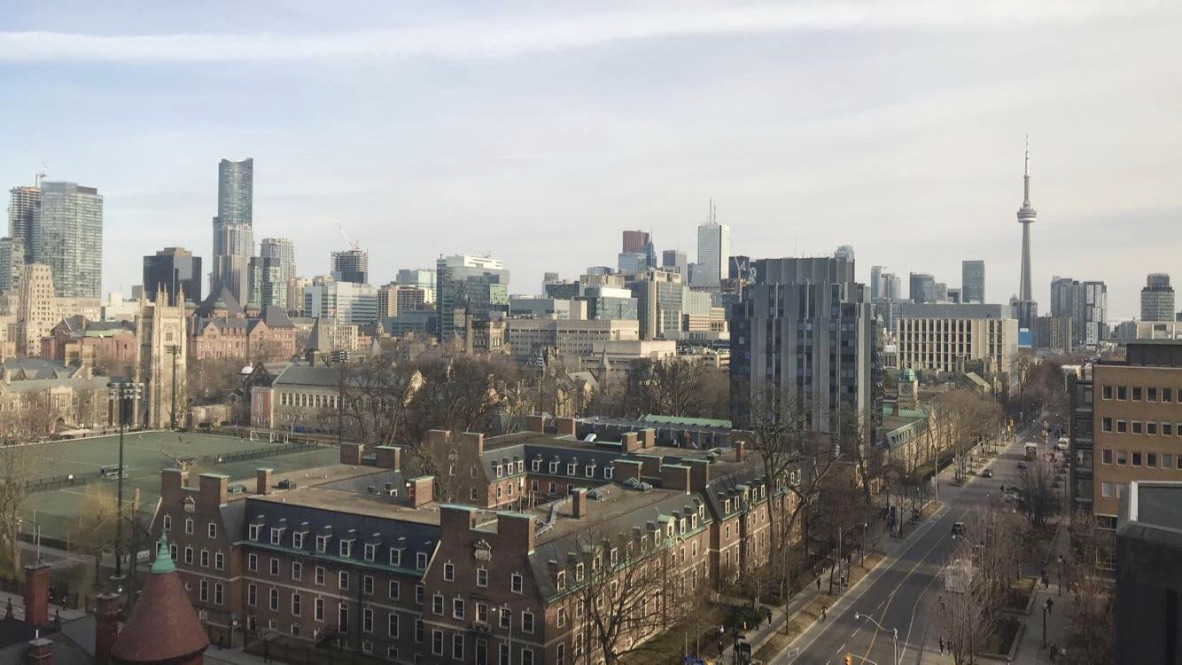Life After Undergrad
“When we view the past through the lens of hindsight, the journey undertaken and challenges overcome will often seem less monumental than they were at the moment of experience.”
Though profound and thought-provoking, this astute counsel from my high school principal hardly helps ease the worry of failure. As an undergraduate, obtaining a bachelor’s degree certainly feels like a Gatsbian green light right now. In a competitive environment such as the University of Toronto, these first four years at university are never an easy feat — with or without COVID-19. But what do our predecessors say, those who have unlocked this achievement?
We firstly interview Ibraheem Aziz, who graduated from U of T in 2019 with a Bachelor of Commerce. He is an Innis College alumnus, currently working in payments strategy at the Bank of Montreal. During his time at Innis, he volunteered with the InSIGHT mentorship program, working with first-year students to help them navigate the university environment. He also served on the Innis College Council as a student representative, and he continues to remain involved as an alumni mentor with the college.
As an undergraduate student, Ibraheem’s plans after graduation were to travel and begin working full-time in his field. Throughout his third and fourth years, he applied to various roles, ultimately landing an internship and subsequent full-time role in strategy and financial services. Coming from a commerce background, Ibraheem knew that it was important to enter the workforce shortly after school — a goal which he successfully achieved through networking and leveraging both his classroom and extracurricular experiences. And we are glad to hear that he did end up having the opportunity to travel as well!
Fortunately, the onset of COVID-19 occurred about nine months after his graduation, at which point Ibraheem was already settled into his job and shifting to working remotely. While he was not able to travel or have face-to-face interactions as much during the summer, our interviewee has found that his career progress was interrupted and that there was still plenty of time to relax with family and friends.
What about his advice to current undergrads? “I wish I knew that it’s ok to not have a defined, linear path to what you want to do after school,” replied Ibraheem. “During undergrad, I often felt pressure to ‘figure everything out,’ and while it’s important to have an idea of what you want to do after school, the reality is that your plans will never occur exactly as you might envision. Trust the process and be comfortable with ambiguity; it opens you to a broader set of opportunities.”
[Text Wrapping Break]Ibraheem also gives a lot of credit to the InSIGHT mentorship program for helping him articulate an empathic leadership skill set. Throughout his upper years, he had the opportunity to mentor students from across various fields of study, which helped him develop his own communicative abilities in learning from their experiences. As a member of the Rotman Commerce Competition Team, Ibraheem was also competing in various global competitions and conferences, which helped him understand the value of bringing a team mindset to address real-time challenges, all while working towards a common goal.
Our other interviewee is an alumnus from the class of 2018: Chenghao (Hector) He. Hector graduated from U of T with a bachelor’s degree in biological physics. During his undergrad years, he also volunteered as a mathematics science tutor at The Saturday Program, organized by the University of Toronto Medical Society. Hector currently resides in the New York City Metropolitan Area, where he is pursuing a Ph.D. at Weill Cornell Graduate School of Medical Sciences.
By the end of his third year of undergraduate studies, Hector already had plans to pursue a Ph.D. in biomedical sciences, and he is currently on track with this in the U.S. Luckily, as he was on 2018 admission for graduate school; the impact of COVID-19 had just missed him, but it seems that even for the 2019 admission for his current program, there was a large number of students from all around the world.
When asked about advice for current undergraduates at U of T, Hector emphasized the importance of connecting with others ahead of one’s desired career path and listening to their stories and advice. “I started my research at the end of my second-year undergraduate, so I was lucky to stay in a very academic environment for my final two years,” he wrote in our correspondence. “I learned how to face graduate school by chatting with colleagues there, in a very casual way.”
I often envision myself and my fellow students after graduation. Some of us will be able to enjoy each stage of our life as it comes. For some, the responsibilities of supporting themselves will prove a great challenge. Some of us will use the opportunity shortly after college to travel with freedom seldom experienced ever again. Some may struggle with loneliness and making new friends in a foreign place, while others relist in the opportunity to learn more from a wider array of life experiences.
There is no definite answer to the question, “What is life like after graduation?” because each response is unique to the responder. And because as much as freedom and possibilities have opened up for students when attending university, more opportunities and challenges will find us afterwards.
